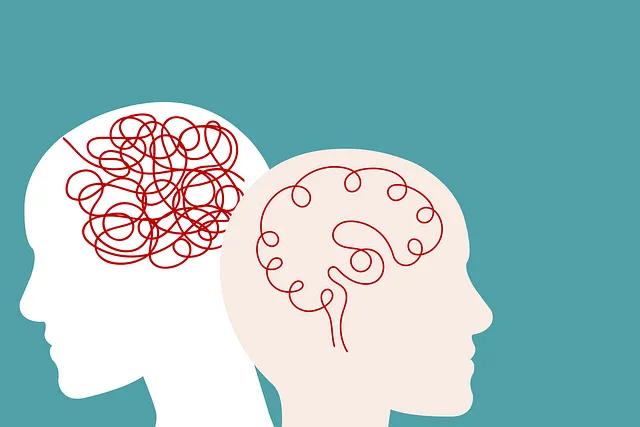Cultural diversity significantly influences mental healthcare practices, as seen in Kaiser Permanente behavioral health services Littleton, which caters to a diverse population. Recognizing cultural differences is vital for tailoring effective treatment. Strategies like Social Skills Training and Self-Care Routine Development improve patient trust and engagement. Providing culturally sensitive care involves multilingual services, accessibility for non-English speakers, and comprehensive training for healthcare professionals. Staff diversity, training in mind over matter principles, emotional intelligence, and workshops enhance cross-cultural communication, leading to improved patient engagement, treatment adherence, and positive health outcomes. Measuring success through both quantitative and qualitative methods allows for continuous improvement, fostering an inclusive environment that benefits both patients and providers.
In today’s diverse society, cultural sensitivity in mental healthcare is paramount. This article explores the impact of cultural diversity on mental health care and its challenges, particularly within Kaiser Permanente behavioral health services in Littleton. We delve into effective strategies for incorporating cultural competence, highlighting the crucial role of training and education in enhancing cross-cultural communication. Additionally, we discuss how to measure the success of initiatives aimed at improving cultural sensitivity in these services.
- Understanding Cultural Diversity and Its Impact on Mental Health Care
- Challenges in Providing Culturally Sensitive Services at Kaiser Permanente Littleton
- Strategies for Incorporating Cultural Competence in Behavioral Health Practices
- The Role of Training and Education in Enhancing Cross-Cultural Communication
- Measuring Success: Evaluating the Effectiveness of Cultural Sensitivity Initiatives
Understanding Cultural Diversity and Its Impact on Mental Health Care

Cultural diversity is a rich fabric that greatly influences mental healthcare practices. Recognizing and understanding this diversity is paramount, especially in institutions like Kaiser Permanente behavioral health services Littleton, which cater to a wide range of backgrounds. Each culture carries unique perspectives on mental well-being, shaped by historical, social, and religious factors. These differences can significantly impact how individuals express and perceive emotional distress, seeking help, and responding to treatment. For instance, some cultures emphasize collective support systems, while others focus more on individual resilience.
This cultural landscape underscores the importance of tailored approaches in mental healthcare. Incorporating practices like Social Skills Training and Self-Care Routine Development for Better Mental Health can be culturally sensitive strategies. By acknowledging and respecting these diverse perspectives, healthcare providers in Kaiser Permanente behavioral health services Littleton can foster trust, improve patient engagement, and ultimately enhance the effectiveness of treatment plans, ensuring better outcomes for a diverse range of patients.
Challenges in Providing Culturally Sensitive Services at Kaiser Permanente Littleton

Providing culturally sensitive services at Kaiser Permanente Littleton presents unique challenges due to the diverse nature of its patient population. With a mix of various ethnic backgrounds, cultural beliefs, and languages spoken, ensuring inclusive care requires careful consideration and tailored approaches. The organization must recognize that one-size-fits-all strategies may not resonate with all individuals, especially those from marginalized communities.
One significant hurdle is overcoming communication barriers. Offering services in multiple languages and ensuring accessibility for non-English speakers is essential for building trust and fostering effective treatment alliances. Additionally, cultural sensitivity training for healthcare professionals is vital to understanding the nuances of different cultural practices and beliefs related to mental health. This enables providers to adapt their approaches, respect patients’ choices, and facilitate coping skills development and mood management in ways that align with individual cultural contexts.
Strategies for Incorporating Cultural Competence in Behavioral Health Practices

Incorporating cultural competence into behavioral health practices is essential for providing effective care to a diverse range of patients. At Kaiser Permanente behavioral health services Littleton, professionals embrace strategies that promote understanding and respect for various cultures and backgrounds. One key approach is to ensure staff diversity, reflecting the communities they serve, which fosters empathy and a deeper connection with clients. Additionally, training in Mind Over Matter Principles equips practitioners with tools to navigate cultural nuances, enhance communication, and tailor interventions to meet individual needs.
Emotional intelligence plays a pivotal role in this process. By recognizing and appreciating the impact of cultural beliefs on emotional expression, mental health professionals can create safe spaces that encourage open dialogue. Through the integration of Emotional Well-being Promotion Techniques, patients are empowered to explore and manage their emotions while navigating the complexities of their cultural identities. This holistic approach not only improves clinical outcomes but also strengthens the therapeutic bond between caregivers and clients.
The Role of Training and Education in Enhancing Cross-Cultural Communication

Effective cross-cultural communication is a cornerstone of providing quality mental healthcare, especially within diverse communities like those served by Kaiser Permanente behavioral health services Littleton. Training and education play a pivotal role in equipping practitioners with the skills to navigate cultural nuances and barriers to ensure every patient receives respectful, competent care.
Workshops, seminars, and ongoing professional development programs focused on cultural sensitivity can help professionals understand different self-care practices, depression prevention strategies, and stress reduction methods unique to various ethnic and cultural groups. By fostering an environment where healthcare providers are adept at interpreting non-verbal cues, incorporating culturally relevant therapeutic techniques, and demonstrating genuine empathy, the quality of care significantly improves. This, in turn, promotes better patient engagement, treatment adherence, and ultimately, positive health outcomes.
Measuring Success: Evaluating the Effectiveness of Cultural Sensitivity Initiatives

Measuring success is a vital component when implementing initiatives focused on cultural sensitivity within mental healthcare practices. Organizations like Kaiser Permanente behavioral health services in Littleton have recognized the importance of evaluating the effectiveness of such programs to ensure they are achieving their intended goals. This process involves assessing not only patient outcomes but also the satisfaction and experiences of both patients and providers from diverse backgrounds.
By utilizing quantitative and qualitative methods, mental healthcare providers can gain valuable insights into the impact of cultural sensitivity initiatives. This may include tracking improvements in emotional well-being promotion techniques and self-esteem improvement among patients from various cultural groups. Simultaneously, gathering feedback from staff members can help identify areas for enhancement, fostering a more inclusive environment that supports both patient care and provider growth.
Mental healthcare practices, such as those offered by Kaiser Permanente behavioral health services in Littleton, must embrace cultural sensitivity to address the unique needs of a diverse population. By understanding the impact of cultural diversity on mental health and implementing strategies like enhanced training and education, we can improve cross-cultural communication and service delivery. Measuring the success of these initiatives ensures that care remains culturally competent and accessible, fostering an environment where all individuals feel valued and supported on their journey to healing.






